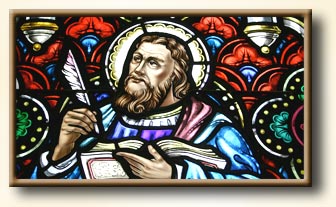|
A real mental stumbling block to many people seems to be the use of the word, “Catholic,” in any description of Anglicanism. This undoubtedly is one of those emotional prejudices dating from the days when “Catholic” described solely the Roman Catholic Church and “Romanism” was sorely feared and disliked by non-Roman Catholics. A more sober look in the light of the full sweep of developments since the Reformation will perhaps help to develop a broader and less emotional attitude, at least among Anglicans.
It is unfortunate that the word, “Catholic,” ever came to be exclusively associated with the Roman Catholic Church. It is also the proud possession of the Eastern Orthodox Churches and of the Old Catholic church, and it should equally be the proud possession of Anglicans. For what does “Catholic” mean? It means the Christian religion which is full and complete and clearly continuous with the primitive Church established by Jesus Christ and continued by the Apostles. Without any question, Anglican Churches fit into the bounds of that description.
The Church of England, from which all Anglicans descend, was the Catholic Church in England as it derived from the Apostles through the early Celtic Church, the Church of St. Augustine, and the Church of Henry VIII and Elizabeth I in England. It was THE continuous Christian Church in England. It was separated from the Roman Pope by Henry VIII and in succeeding reigns was simplified, purified and purged of the Roman excesses of that period. It never ceased to be demonstrably “Catholic”. It came in that character to America.
Anglicanism retained at the Reformation and retains to this day all the marks of the Church Catholic. It looks to the Scriptures as the base of all teaching; it remains in the Apostolic succession of bishops; it recognizes the two Gospel Sacraments of Baptism and the Holy Communion and the five lesser non-Gospel Sacraments of Confirmation, Penance, Holy Orders, Matrimony and Unction (however they are variously described and called), and it recognizes and uses the Apostles’ and Nicene Creeds. These are the fundamental elements which Anglican Churches share with all other parts of the Catholic Church.
In the Apostles’ Creed, we Anglicans confess our belief in “the holy Catholic Church”, in the Nicene Creed, in slightly different terms; we confess our belief in “one Catholic and Apostolic Church.” Every time we say those words, we reaffirm our claim to be Catholic.
Because to be Catholic means to be a full and complete Christian, then it follows that to be Catholic means to be loving, charitable, broadly inclusive, and tolerant within broad limits. To be Catholic means to seek the unity of all Christians and especially to draw within the broad limits of the true and original Christian faith all who may now stand outside those limits because of ignorance, prejudice, misunderstanding or rejection.
Anglicanism claims it priceless heritage of Catholicism. It is, to be sure, a part of Catholicism which is Protestant Catholic insofar as it has “protested” against the supreme authority of the Pope. It is also Reformed Catholic insofar as it has always sought to remove from its faith and from its practice and from its worship those abuses and excrescences which crept into the Church at various times from the Dark Ages to modern times. But whatever adjective is additionally applied, Anglicanism always retains the basic adjective of Catholic.
Let all Anglicans be proud to call themselves Catholic. Let all Anglicans seek to preserve in its fullness and purity the complete Christian faith which is their Catholic heritage. And let all Anglicans pray and work for that spread and unity of the faith which is an integral part of the meaning of the word, “Catholic.”
|



